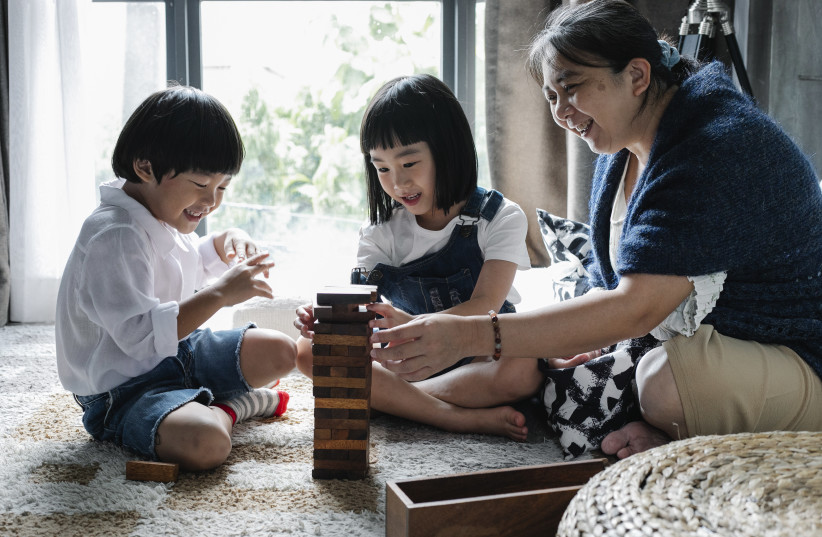Channel 11 TV has been running a series called “80 and Four” that – with the assistance of professionals in geriatrics, psychology and early childhood – brings together preschoolers with octogenarians and nonagenarians. The results have been not only heartwarming as they play, sing, dance and learn together but also life changing, raising the older people’s spirits, reducing anxiety and depression and strengthening them physically.
Now, a study of older women in a South African retirement home links interactions with greater sense of belonging, purpose when the two age groups interact.
Elizabeth Jane Earl and Debbie Marais of Stellenbosch University in the heart of the Western Cape winelands present these findings in the open-access journal PLOS ONE under the title “The experience of intergenerational interactions and their influence on the mental health of older people living in residential care.”
The mental health of an increasing aging population is an important part of healthcare, they wrote. “Research has explored means to enrich the lives of older adults living in residential settings... This is a cross-sectional, qualitative study with a quantitative component. It looks at common mental health conditions in residential-living older adults in and describes their experiences of intergenerational interactions with playschool children.”
The elderly – facing challenges like changing roles, reduced physical capabilities and some loss of independence in retirement homes – may be vulnerable to common mental health conditions in addition to age-related health problems. Studies suggest that, although physical health is quite well cared for in retirement homes, social and mental health receive less attention, so there seems to be a high prevalence of undiagnosed, untreated psychological problems in retirement homes.

Elderly mental health
Participants completed a questionnaire which included the Geriatric Depression Scale and Geriatric Anxiety Scale and a semi-structured interview. Anxiety and depression were common in the sample with limited awareness of non-pharmacological therapy available at the facility.
The intergenerational interactions were experienced positively with emerging themes of belonging, sense of purpose, reminiscence and positive affective experiences but influenced by participants preconceptions of children. The study concludes that intergenerational interactions may serve as adjunctive therapy in managing common mental health conditions in residential-living older adults.
Prior research suggests that common mental health conditions are often undiagnosed and untreated in retirement homes. Standard treatment for such conditions typically involves a combination of medication and non-pharmacological interventions. Some evidence suggests that programs enabling older adults to interact regularly with preschoolers may boost mental health, but most of that research has been conducted outside of retirement homes.
To deepen understanding of potential benefits of intergenerational interactions, Earl and Marais conducted a study at a retirement home in where residents can interact regularly with children who attend an onsite preschool. Activities include playing games, doing puzzles reading, or singing with the children.
The researchers invited residents to complete a questionnaire evaluating their anxiety and depression levels and asking them to describe their experiences with the children. Ten women participated, with four screening as possibly having anxiety, depression or both.
Overall, the participants reported positive experiences with the children. Analysis of their responses suggested that the interactions promoted a sense of belonging and purpose, fond recollection of their own childhood and positive effects on mood and emotions.
On the basis of these findings, the researchers concluded that “intergenerational interaction programs have the potential to help manage common mental health conditions for retirement-home residents.” They outline recommendations for implementing such programs and call for larger studies to further explore the potential benefits.
